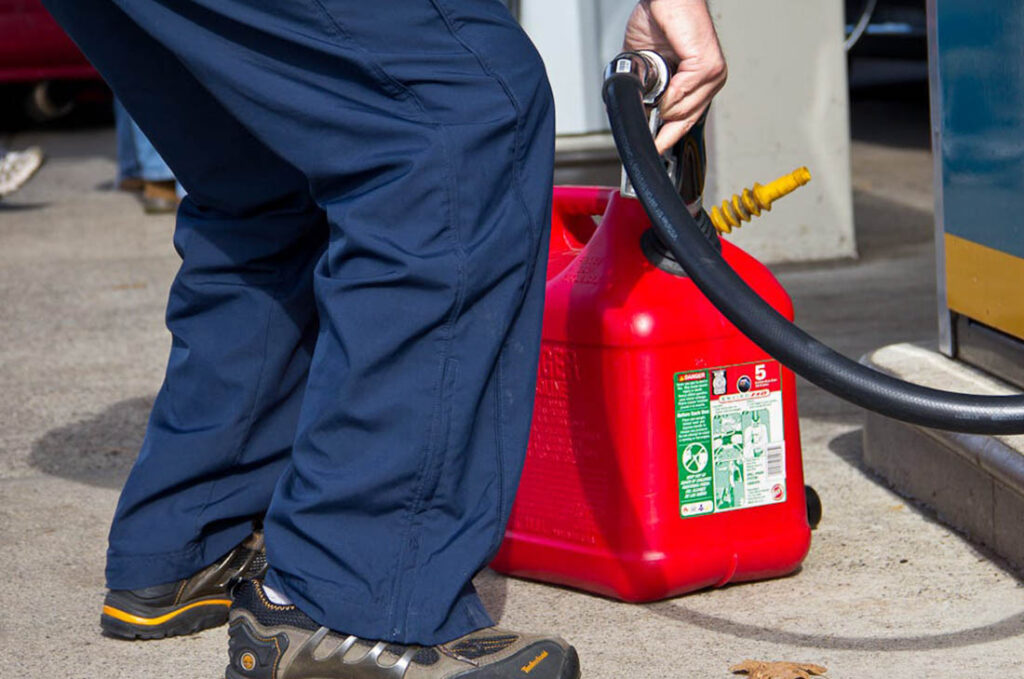With the drop in gas prices, you might be tempted to “stock up” here are some things to remember before filling that extra can.
American Burn Association states that gasoline produces ignitable vapours that are very dense, 3 to 4 times heavier than air. These vapours are ignitable at a wide range of mixtures with air, from 1.6 to 7.2 times the density of air. They can travel for great distances along the ground or floor and they tend to accumulate in low enclosed spaces, the same areas where pilot lights on appliances tend to be located.
A nearby open flame from the pilot light of a water heater or furnace can easily ignite vapours from these products. Because of its low flash point, high vapour density and wide flammable range, these products are highly explosive. A small spark that causes gasoline to explode may lead to a large fire, which can then lead to an even larger explosion.
The container should be filled only 95% full. The remaining air space allows room for the gasoline to expand if it warms up later. Otherwise, expansion could force liquid gasoline out of the container or distort the container.
Guidelines for Storing Gasoline Safely
- Do not store gasoline in the house or garage!
- Always store a gasoline container in a cool and well-ventilated area. Keep it away from any source of heat or sparks such as a water heater, electric motor or car engine.
- Never store more than one gallon of gas.
Always store the container in a shed away from the house or any habitable structure. - When not in use, keep gasoline locked up at all times.
- Have a class B type extinguisher located near gasoline storage area.
- Always keep gas out of reach of children.
If you do have an insurance claim as a result of improper storage of gas, your insurance might not be there to cover you.




